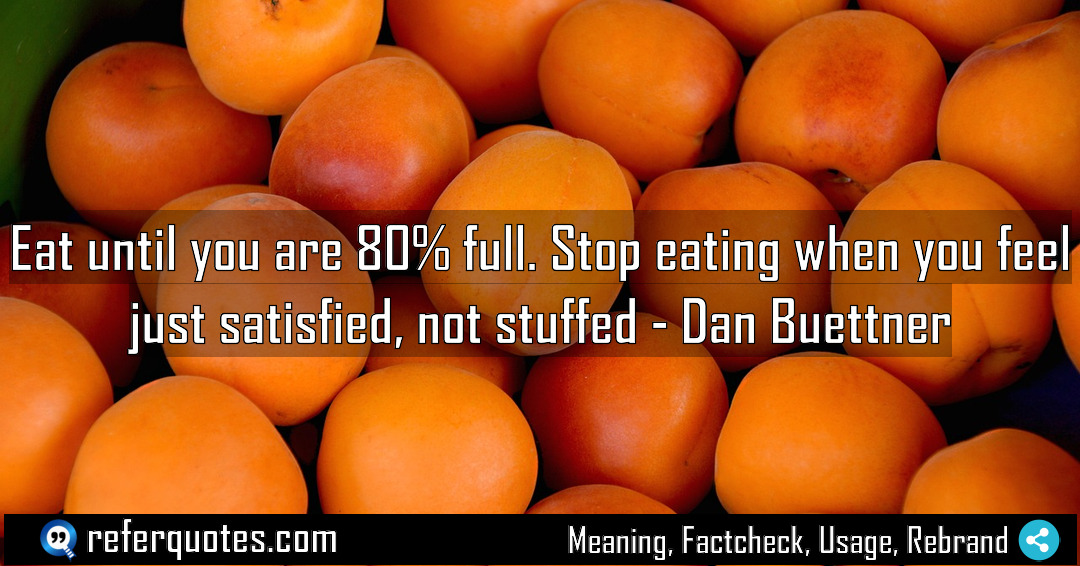Eat until you are 80% full is a powerful, deceptively simple piece of wisdom. It’s not about deprivation, but about recalibrating your relationship with food. This single habit can fundamentally shift your health and energy levels.
Share Image Quote:Table of Contents
Meaning
It’s the art of stopping at satisfaction, not fullness. You eat to no longer be hungry, not until you can’t eat another bite.
Explanation
Here’s the thing most people miss. There’s a critical lag time—about 15-20 minutes—between your stomach being full and your brain getting the memo. If you eat until you feel 100% full, you’ve actually overshot the runway and you’re stuffed. That 80% mark? That’s the sweet spot. It’s that moment you put the fork down and think, “I could have a little more, but I’m perfectly content.” It’s a gentle restraint that pays massive dividends. You avoid that heavy, sluggish feeling and your digestive system isn’t constantly under stress.
Quote Summary
| Context | Attributes |
|---|---|
| Original Language | English (3668) |
| Category | Health (243) |
| Topics | habits (85), moderation (4), nutrition (32) |
| Literary Style | proverbial (12), succinct (151) |
| Overall Quote Score | 72 (65) |
Origin & Factcheck
This concept was popularized in Dan Buettner’s 2008 book, “The Blue Zones,” where he documented the lifestyles of the world’s longest-lived people. It’s often attributed to an Okinawan, Japan principle called “Hara Hachi Bu,” which literally translates to “eight parts out of ten stomach full.” It’s not some new fad diet; it’s a centuries-old cultural practice.
Attribution Summary
| Context | Attributes |
|---|---|
| Author | Dan Buettner (58) |
| Source Type | Book (4032) |
| Source/Book Name | The Blue Zones: Lessons for Living Longer from the People Who've Lived the Longest (58) |
| Origin Timeperiod | 21st Century (1892) |
| Original Language | English (3668) |
| Authenticity | Verified (4032) |
Author Bio
Dan Buettner blends exploration, data, and storytelling to explain how ordinary habits create extraordinary longevity. As a National Geographic Fellow, he led teams to identify Blue Zones across five regions and turned those insights into citywide programs that improve well-being. The Dan Buettner book list features research-driven guides like The Blue Zones and The Blue Zones Solution, plus cookbooks that adapt traditional longevity foods. A former record-setting expedition cyclist, he now focuses on evidence-based lifestyle design and policy changes that help communities eat better, move more, and find purpose.
| Official Website | Facebook | X| Instagram | YouTube
Where is this quotation located?
| Quotation | Eat until you are 80% full. Stop eating when you feel just satisfied, not stuffed |
| Book Details | Publication Year/Date: 2008; ISBN: 978-1426207556; Last edition: National Geographic Society (2012), 336 pages. |
| Where is it? | Chapter: Hara Hachi Bu, Approximate page from 2012 edition |
